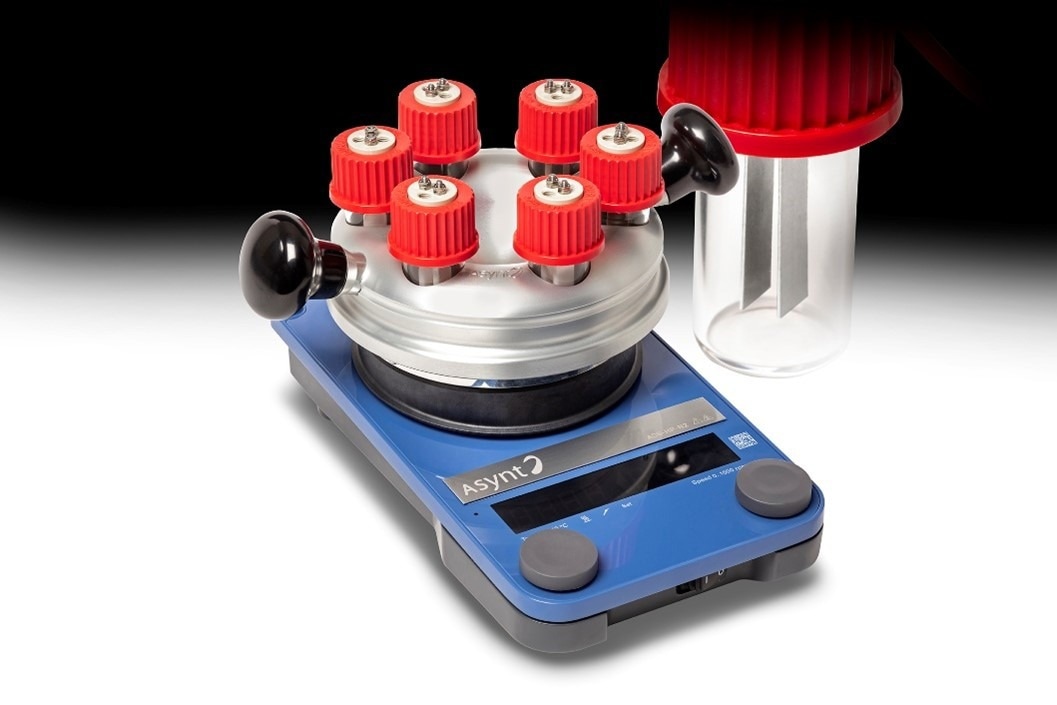Asynt have announced the launch of an innovative electrochemistry platform, ElectroReact, to revolutionise how scientists carry out electrochemical reactions.

ElectroReact: a truly flexible electrochemistry platform sparks new life in the field. Image Credit: Asynt
Designed in conjunction with engineers and scientists at the University of Leeds, ElectroReact is built to enable truly flexible use and achieve repeatable and accurate results safely.
With limited options previously available that offer complete flexibility, chemists often resorted to ‘homemade’ electrochemistry systems that can be potentially hazardous to use and make reproducing results – even in the same laboratory using the same apparatus – challenging. These systems cost researchers time and money to develop and can be tricky to use with huge scope for human error.
The user-friendly and simple to set up ElectroReact platform changes everything. Chemists can easily manipulate their setup by changing electrodes, use additional electrodes such as a reference, connecting to a gas or Schlenk line, carry out additions and withdrawal of materials, and have precise control over parameters such as heating and stirring via magnetic hotplate stirrer. Additionally, ElectroReact works with any standard power supply or potentiostat and uses commonly available fittings and accessories for optimum user flexibility.
Dr. Charlotte Willans, the Synthetic Inorganic Chemist who initially launched the project at the University of Leeds, explained her frustration at the lack of options previously available:
“Without a uniform means of carrying out our electrochemical reactions, the results could be unreliable and difficult to reproduce. We needed an electrochemistry platform that was flexible enough to use with a wide range of electrodes and suitable for additions and withdrawals, and which could be used with the high-power potentiostat required for electroanalytical chemistry.”
Asynt’s Head of Research & Development, Martyn Fordham, worked closely with university engineer, Prof. Nikil Kapur, and Dr. Willans as he saw the potential to make electrochemistry an accessible area of development for researchers: “We knew that the existing solutions weren’t meeting chemists needs and were determined to come up with a better way of working. ElectroReact is simple to use but performs brilliantly. It allows parallel electrochemical reactions in 20 mL vials, heated up to 100 ◦C without the need for expensive accessories, and works with common tools you’re likely to have in your lab already.”